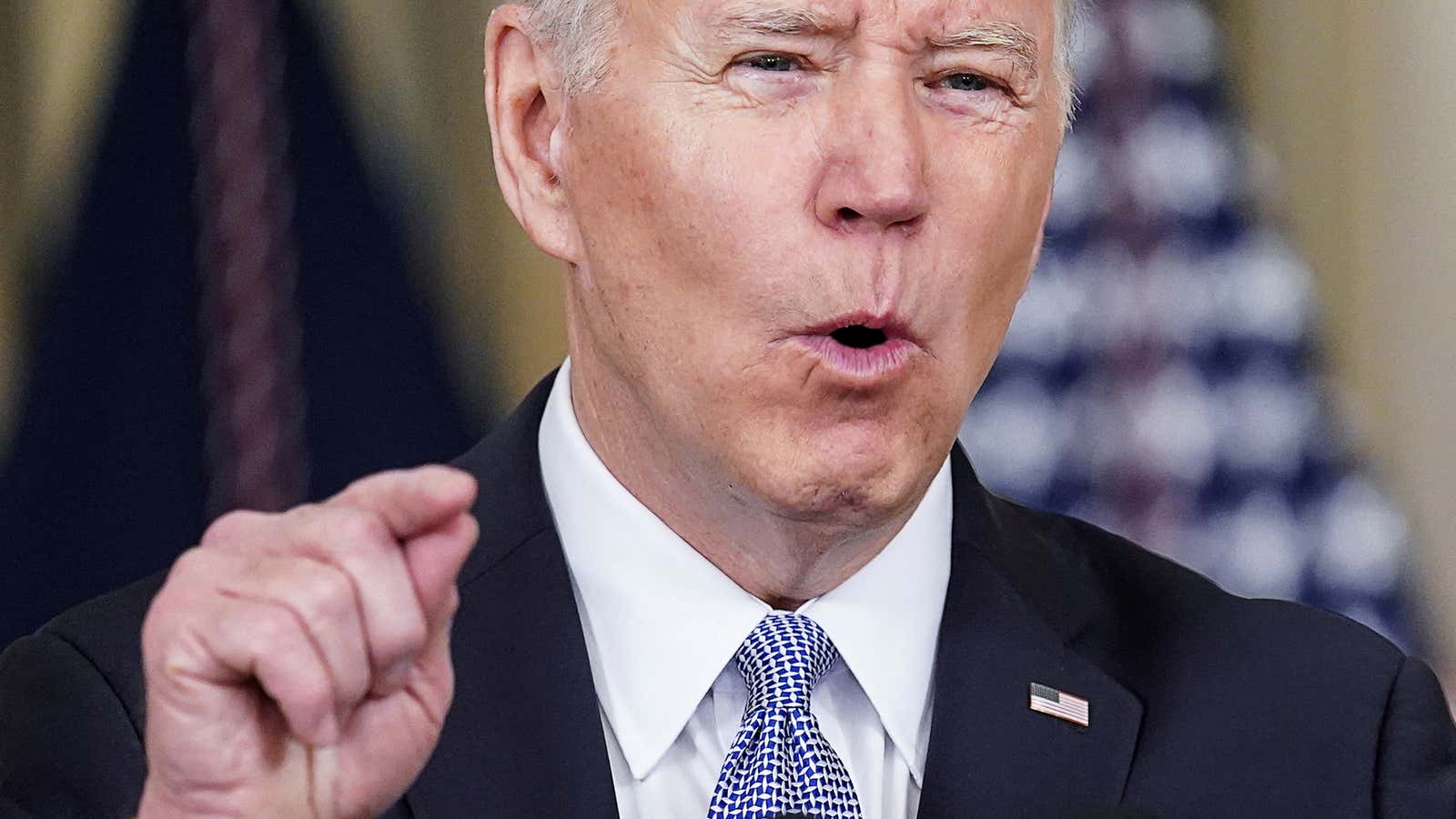Joe Biden laid out his plan for fighting inflation today in a Wall Street Journal op-ed. The knock on it is that he mostly acknowledges that taming high inflation is largely out of his control. But the strength of Biden’s plan is what it doesn’t contain: He avoids the most common policy mistake that politicians make in response to inflation.
Here’s Biden’s inflation-fighting plan in a nutshell:
- Let the Fed do its job: He says the US Federal Reserve has a “primary responsibility” to fight inflation and vows not to interfere. And he agrees with the Fed’s assessment that inflation is the top economic challenge in the US right now.
- Address supply shortages throughout the economy: He urges Congress to pass clean energy tax credits and investments that he claims would lower energy costs over time, and notes that he released oil from the Strategic Petroleum Reserve earlier this year. He points to his recently announced housing policy, which aims to increase the number of homes being built in order to lower prices. He also nods toward lowering drug prices (a plank in the Build Back Better bill that hasn’t made it through Congress) and mentions cracking down on exorbitant fees for ocean freight to address supply chain issues.
- Lower the deficit: In addition to winding down pandemic relief programs, he proposes eliminating tax loopholes in order to raise more revenue.
The problem with several of these ideas is that they wouldn’t make much difference in the near-term. Clean energy tax credits are great, but the energy transition is a decades-long process and a bit more funding for renewables won’t meaningfully affect inflation this year or next.
The wrong way to fight inflation
But the Biden administration gets credit for what it didn’t say. The op-ed focuses squarely on supply-side issues like energy and housing, and avoids the common missteps that politicians often make on inflation.
Mihir Desai, a professor of finance at Harvard Business School, explained those mistakes on a recent episode of his podcast After Hours:
“What goes wrong with people thinking about inflation is they’re so used to thinking about demand they don’t think about supply. They think, Oh well here’s what we have to do: We have to give people more money so they can buy all the goods that are more expensive now. That turns out to be wrong. Oh no, here’s what we need to do: We need to cut taxes so people will have more money because then they’ll be able to buy more. That turns out to be wrong. Finally, you say, well, we’ve gotta tax all these windfall profits by these companies who are making too much money. But that turns out to restrict supply which will make the problem worse. So all these intuitions get it wrong… Fundamentally these are supply considerations.”
Those intuitions put pressure on politicians, as evidenced by US states announcing gas tax holidays, which the Biden administration has so far resisted. In California, Gov. Gavin Newsom has proposed $18 billion in “inflation relief” in the form of refunds and bonuses that are likely to exacerbate inflation. Sending out more money increases demand for goods which, without corresponding increases in supply, just raises prices even further.
The Biden op-ed avoids those temptations. It doesn’t promise checks to households struggling with inflation and even the point about “exorbitant” freight fees focuses more on fostering competition than taxing corporate windfalls. Biden may not be able to do much to bring down inflation, but his team clearly realizes it shouldn’t make it worse.
